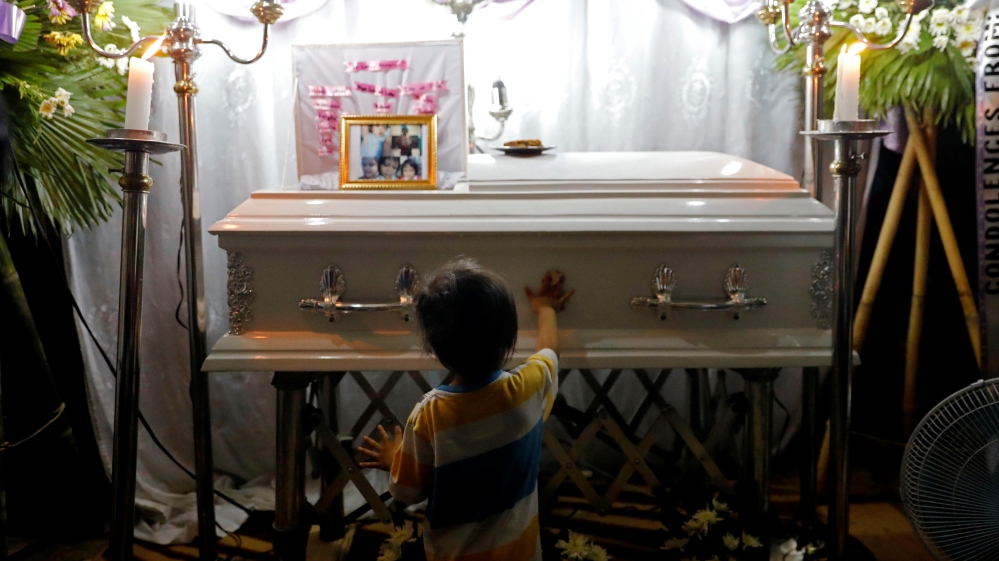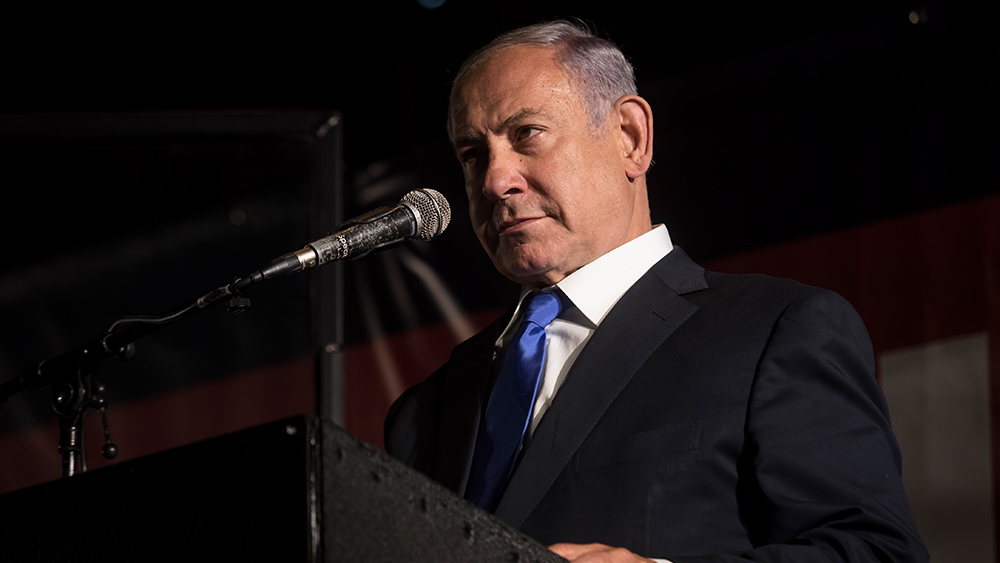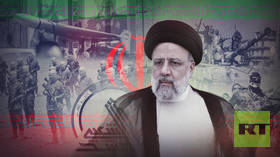Philippines faces call for UN inquiry into war-on-drugs killings

Politicians and activists in Manila have welcomed a draft resolution calling for United Nations action against the thousands of killings in Philippine President Rodrigo Duterte's war on drugs.
The proposal by Iceland, submitted to the 47-member UN Human Rights Council in Geneva on Thursday, urged the Philippine government to prevent extrajudicial executions and marked the first time the council has been asked to address the crisis.
At least 28 countries, mainly European states, have so far backed the call on Duterte's government to "carry out impartial investigations and to hold perpetrators accountable".
The Geneva forum is to vote on the resolution before ending its three-week session on July 12. The Philippines is among its current 47 members.
If passed, the council will request UN human rights chief Michelle Bachelet to "prepare a comprehensive written report on the human rights situation in the Philippines and to present it to the Human Rights Council at its forty-fourth session, to be followed by an enhanced interactive dialogue."
Responding to the move, Philippine Justice Secretary Menardo Guevarra said on Friday the government need not be told by anyone to stop extrajudicial executions.
"Our government is prepared to face any inquiry if the same becomes necessary to disabuse the minds of those who rely on or give undue credence to selective, if not biased, second-hand information," Guevarra told reporters.
One Asian ambassador, speaking on condition of anonymity, indicated that his country would not support it, telling Reuters news agency: "There are worse things happening in the world."
'Add pressure'
The Duterte government insists the more than 6,000 suspected drug dealers killed by police in anti-narcotics operations all put up a fight. But activists say that at least 27,000 have been killed since Duterte was elected in 2016 on a platform of crushing crime.
Myka Ulpina, a three-year-old shot during a police raid last weekend, is among the latest victims, they said. Police said she was used as a human shield by her father, a suspected drug dealer who resisted arrest and opened fire. The girl's mother has rejected that version of events.
Francis Pangilinan, senator for Philippines' main opposition Liberal Party, welcomed the draft text on Friday.
"We hope it will add pressure from the international community so that the Duterte administration will finally see the light and realise that the daily killings is not the solution to the drug menace, and that it will sooner or later be held to account for at the very least failing to stop the killings," he said in a statement.
'Critical first step'
Duterte's critics say his three-year-old campaign has been a failure, intended to create shock and fear and burnish his tough image without making a dent on big narcotics syndicates.
Allegations of police cover-ups, summary executions and planting of drugs and guns are widespread.
In a statement, the Manila-based iDefend group welcomed the draft resolution, saying it "provides a critical first step to help the Philippines".
The group also expressed hope members of the HRC "will appreciate the urgency of the resolution and vote favourably for its adoption".
"Widespread impunity is breaking the social fabric of Philippine society, shrinking civic spaces for dialogue and engagement, corroding the rule of law, while impressing on neighbouring states who wish to emulate the violent campaign," it said.
"International investigation is an imperative if lives are to be saved, if human rights are to be respected and regional human security is to be protected."
Human Rights Watch (HRW) said the situation in the Philippines was a priority.
"Bodies continue to pile up in Manila and other urban areas, again in the context of the war on drugs which we have seen is very much a war against the poor, impoverished and marginalised communities, which are the biggest victims," said Laila Matar, deputy director at HRW.
It occurs in a wider context of "attacks on human rights defenders, media activists, journalists, anyone who really dares to speak up against the killings", she added.
Read More...
Related Articles:
A former mayor, tagged in the government's list of "narco-politicians", and his brother were gunned down on Friday (Jan 4), just hours after President Rodrigo Duterte threatened to slit the throats of "big-time" drug dealers.
The Philippines’ Interior Ministry has announced plans to provide some 42,000 community leaders with free handguns to ramp up the statewide battle against drugs and crime, which continues to draw the ire of human rights defenders. The decision to give state-issued handguns to the community leaders – known locally as barangay captains – was announced by the ministry on Wednesday. The Philippines’ barangay localities vary in size and may be described roughly as districts or neighborhoods. The main condition to acquire a gun for barangay captains is to be willing to fight crime and to not be engaged in illicit activities themselves. The said guns will be provided free-of-charge or the state will subsidize a private purchase of a captain’s gun of choice.
As the extrajudicial killing of people for alleged drug offences continues in the Philippines, the president’s son has been cleared of trafficking - following a formal investigation. Paolo Duterte, son of leader Rodrigo Duterte, had been accused of involvement in the attempted importation of 602kg of methamphetamine (often referred to as “shabu”) into the Philippines from China in 2017. The haul, valued by the state at $125million, was found in a shipment of printing cylinders. The president’s son-in-law was also alleged to be involved in the plot, and has also been cleared of involvement.



